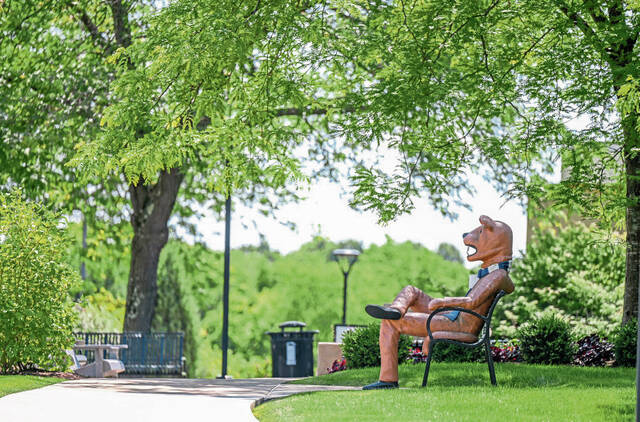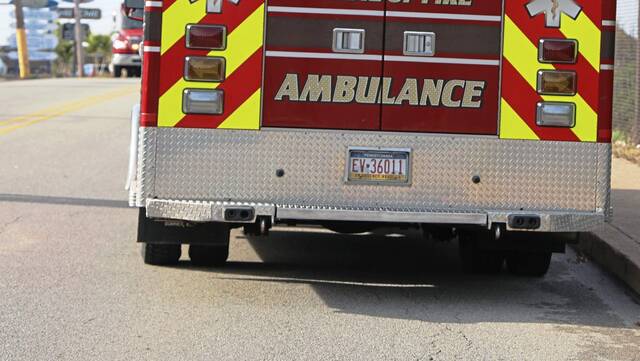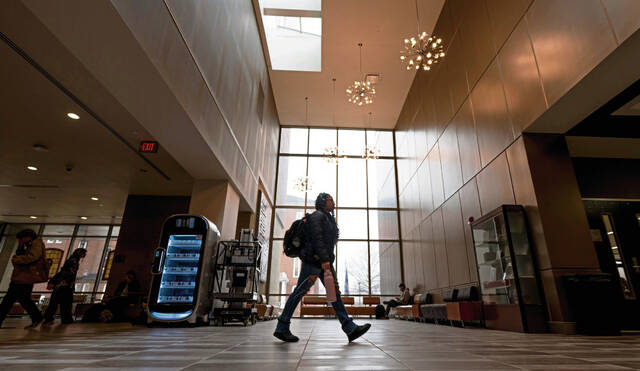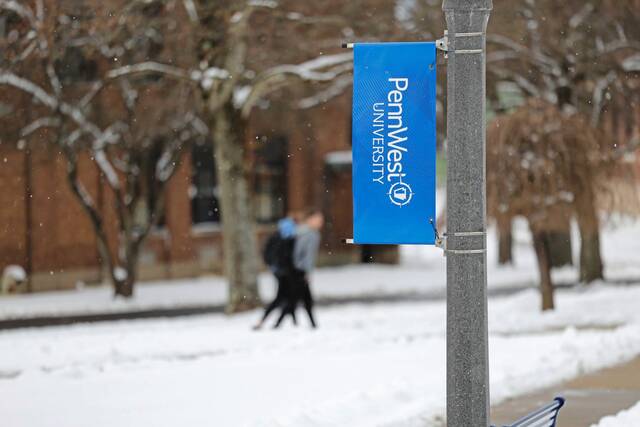With the continued spread of the coronavirus and misinformation about the disease, Pittsburgh-based infectious disease and critical care physician Dr. Amesh Adalja has become a highly sought after expert on the subject.
A senior scholar at the Johns Hopkins Center for Health Security, Adalja works on pandemic preparedness, emerging infectious diseases and hospital preparedness.
Adalja spoke with the Tribune-Review Thursday about how the U.S. should prepare for a coronavirus pandemic, how individuals should prepare themselves, and how long it will take for an immunization to become available, among other questions.
Below is a transcript of the interview, edited for length and clarity.
Question: How should the United States be preparing to deal with coronavirus?
Answer: The biggest thing the United States needs to do right now is move from a mentality that’s tried to contain this virus to one where they’re starting to work on mitigating the impact of this virus. That means shifting away from travel bans, quarantining individuals, isolation, and moving towards preparing our health care systems to be able to deal with the surge of patients they may have, increasing vaccine development, increasing anti-viral clinical trials, scaling up diagnostic tests, and improving public health communications. That’s really what we need to be doing.
Q: You mentioned that there might be an overemphasis on travel bans. Should we be traveling to foreign countries?
A: There is an overemphasis in the sense that, for example, we’re restricting entry of Chinese nationals into the United States, irrespective of whether or not they have symptoms. But there are travel precautions that you can take. So, right now we don’t want Americans to be traveling to China unless there is some essential reason that they need to be there. The same is true for South Korea. But we do know that this is going to be all over the world and it’s going to really be hard to avoid eventually, no matter where you go, because it’s a virus that spreads efficiently in human populations and because of that, no country is going to escape it. It’s going to be like 2009 H1N1 which infected over a billion people in six months.
Q: A California coronavirus patient had to wait days to be tested because of restrictive federal criteria despite doctors’ suggestions. What concerns does this raise for you?
A: It’s not surprising to me that the California patient, who had no link to China, tested positive because we’ve been dealing with this virus at least since November. It’s been spreading in China since November unbeknownst to anybody. So, if you think that a virus that has respiratory spread efficiently through human populations doesn’t get around the world very quickly, you really don’t know much about viruses. We knew that this was going to be here and the fact that this patient had to really jump through hoops to be tested is the wrong way to go about this. Overly restrictive testing criteria is going to limit our ability to deal with this virus. We knew that this community spread was likely occurring but the restrictive testing policies that were in place made it very, very hard to test individuals who didn’t have a strong link to the epicenter of the outbreak. That epicenter is going to become less and less important as we see cases spreading all over the globe.
Q: How do you ascertain that it’s coronavirus and not some other virus?
A: The only way that you can tell that this is a coronavirus caused illness and not another virus, for example like influenza, is to do the diagnostic testing. The symptoms are clinically indistinguishable. You would not be able to tell the difference between somebody who had the flu and someone who had coronavirus without doing a specific test.
Q: How do you boost your immune system? Is that a realistic defense?
A: There’s not a specific medicine that you can take to boost your immune system. What we want people to be is healthy. That means eating a balanced diet and exercising and getting adequate sleep. That helps with your immune system function but it’s not some kind of cure-all that will make you impervious to the coronavirus.
Q: Some health officials say masks are not the “be all, end all.” Do masks work?
A: Masks do work in a health care setting but if you are an individual person that’s just wearing one on the street, likely you’re not wearing it correctly. You’re probably putting your hand underneath it to scratch your mouth and your nose a lot. You also may not be including your nose in the mask, you may just be putting it over your mouth. So, there are a lot of compliance issues that happen when the general public wears them. So they’re not recommended for the general public. And what we’re seeing is people are hoarding those masks and creating increased demand and causing constraints on the supply and we may need that supply for hospitals as we get further into this outbreak.
Q: How long will it be realistically before we’ll see an immunization for this?
A: 12 to 18 months is the best timeline estimate for a vaccine to be available.
Q: How do you see the coronavirus epidemic playing out?
A: I think we are in the beginning stages of a pandemic. I think this pandemic will be mild, maybe around the scale of the 2009 H1N1 pandemic. It will likely not cause the virus to completely disappear from the world. I think it will become something that may become seasonal until we have a vaccine and we may deal with this corona virus in future winter respiratory virus seasons.








